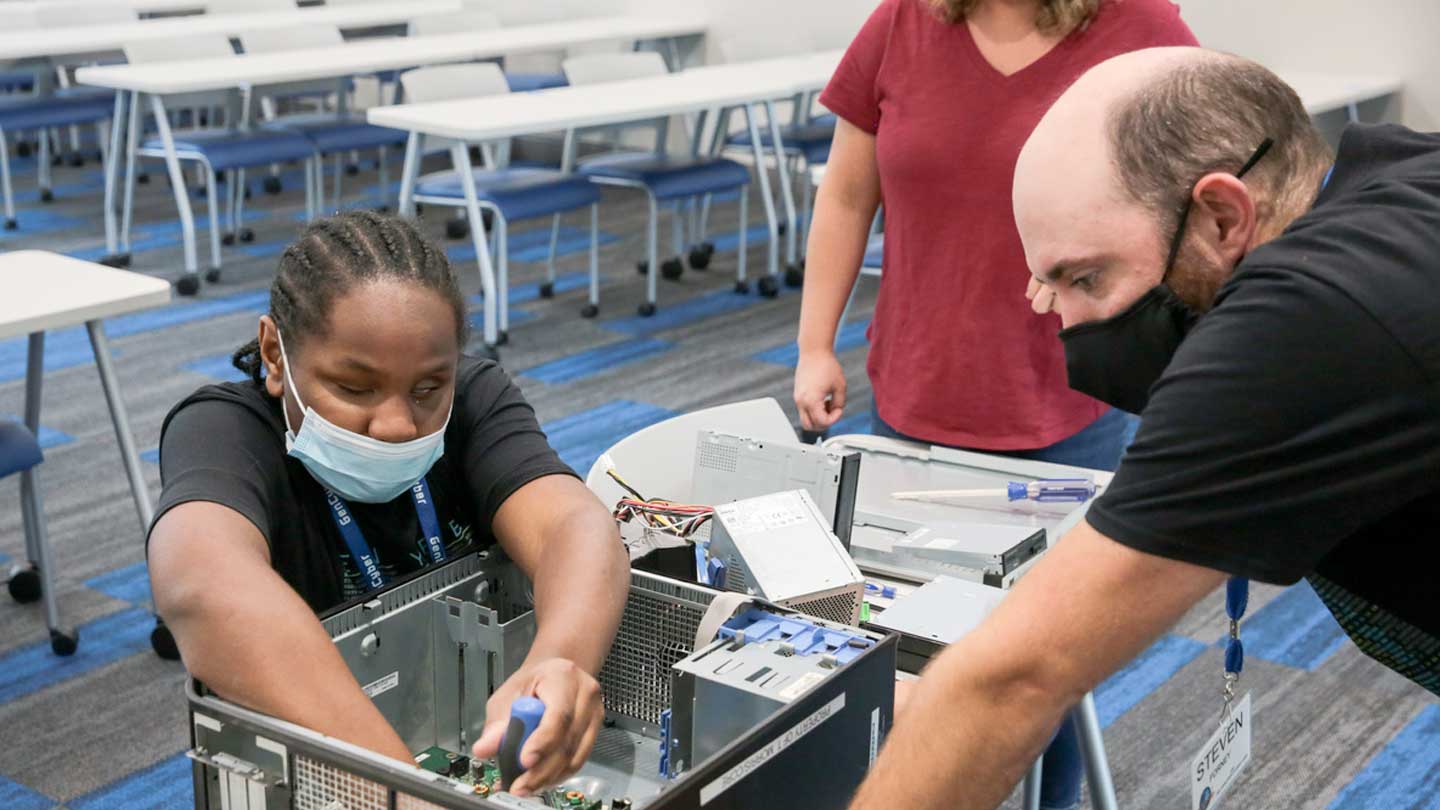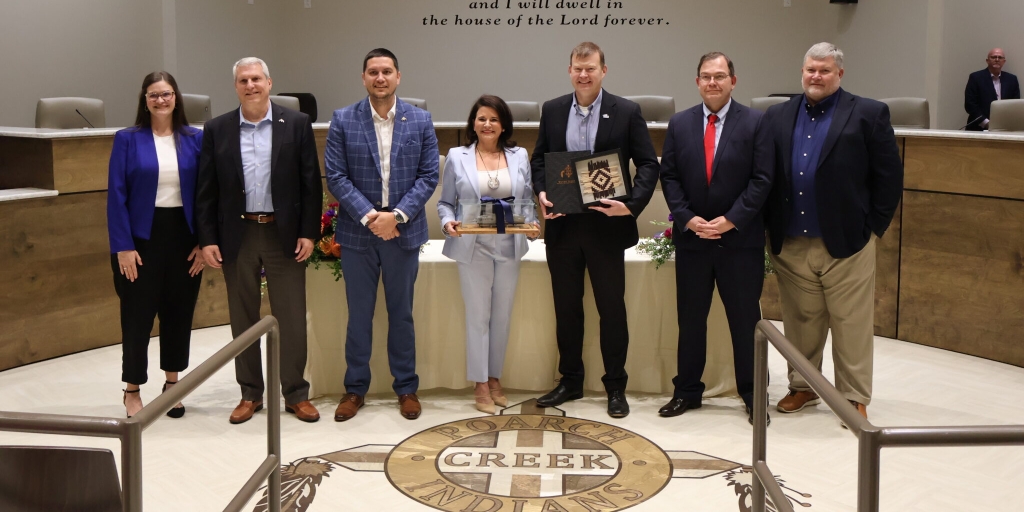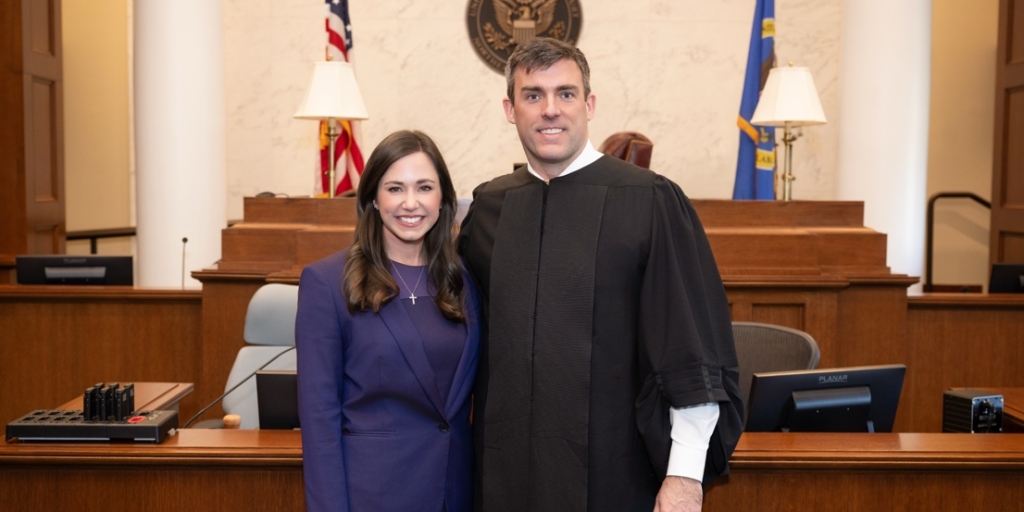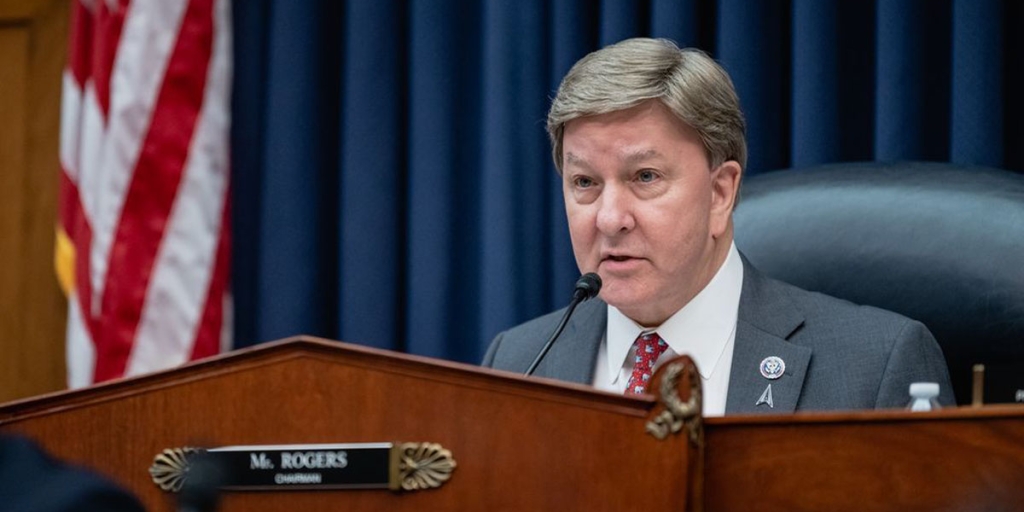Ten high school students with blindness and visual impairments are learning about cybersecurity this week at a GenCyber Camp at The University of Alabama in Huntsville (UAH), a part of the University of Alabama System.
The students from Alabama, Tennessee and North Carolina will be exposed to a wide range of cybersecurity and computer topics at the camp, which is being held by UAH’s Center for Cybersecurity Research and Education (CCRE).
“Students will build a computer, learn to program, and encrypt and decrypt secret messages,” says Jesse Hairston, CCRE assistant director. “Campers also practice digital forensics and build circuits.”
The camp is a partnership between UAH and the Center for Assistive Technology Training at the Alabama Institute for Deaf and Blind (AIDB), Microsoft, the Federal Bureau of Investigation (FBI) and the American Printing House for the Blind.
Camp attendees will hear from a variety of guest presenters, including individuals with visual impairments who work in the technology field.
“Many of our campers make use of assistive technologies like screen readers, magnifiers, braille devices, etc., to learn cybersecurity,” Hairston says.
The camp encourages students with visual impairments to explore cybersecurity careers through camp experiences with skills, technologies and tools used in the cybersecurity field, Hairston says.
A GenCyber Deaf Cyber Force camp for deaf and hard-of-hearing high school students is planned for June 27-July 2.
“This is the fifth year we have hosted this kind of camp, where students learn about online safety, cybersecurity careers, digital forensics, cryptography and how to program microcontrollers,” Hairston says. “We partner closely with the Rochester Institute of Technology’s National Technical Institute for the Deaf Regional STEM Center and the AIDB to bring in 15 students from multiple states, including Florida, Tennessee, Alabama, Georgia, Kentucky, North Carolina, South Carolina, California and New York.”
The FBI leads an interactive case scenario at the camp, discusses cybersecurity careers and demonstrates the use of real-world tools for digital forensics.
Also in July, the CCRE will hold a GenCyber virtual training camp for more than 50 teachers.
(Courtesy of UAH)













